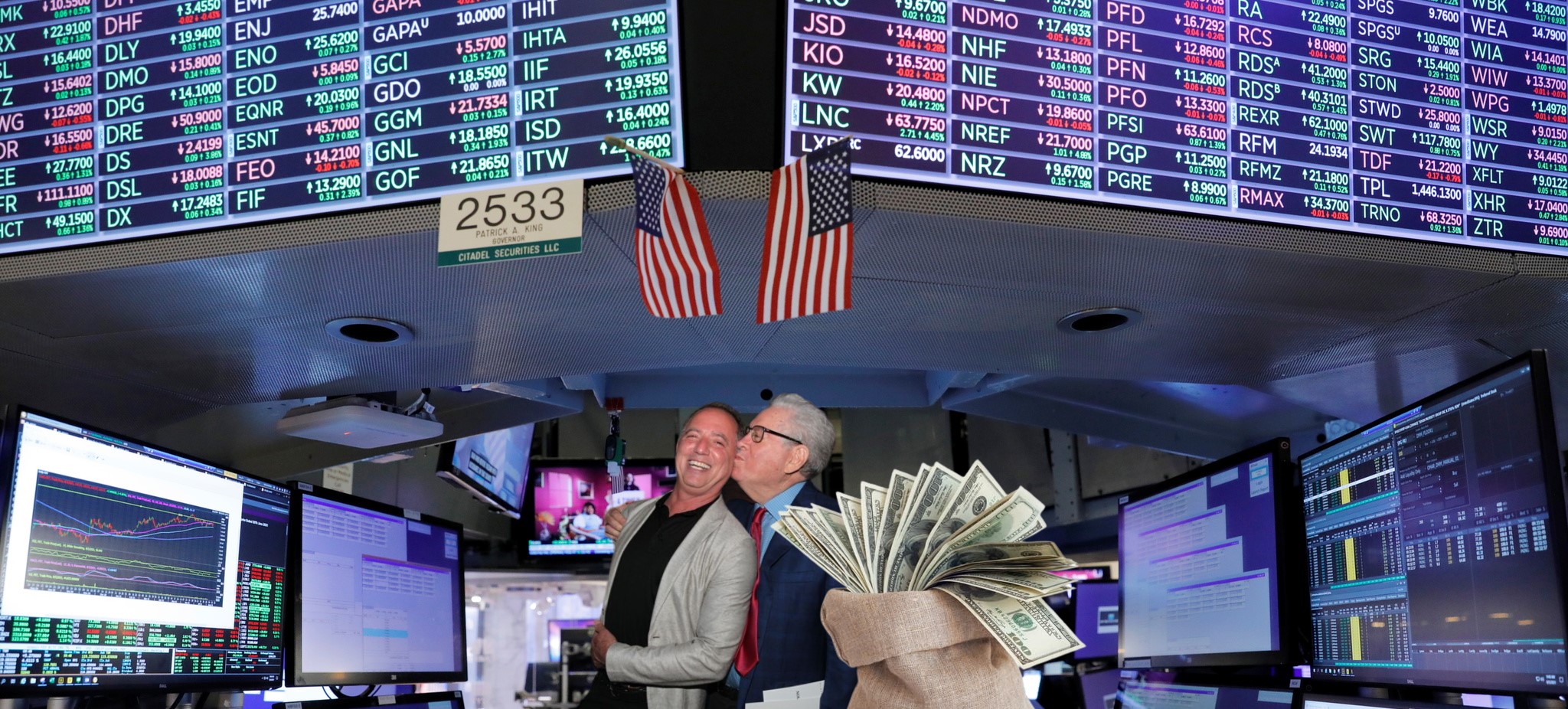
Jefferies Stock Q2 $0.3 Dividend,Earnings Miss,$250M BuyBack
Jefferies Miss predictions and lower revenues, Boosts buyback to $250M, signifying management confidence in the company's value. Robust capital markets business offsets dealmaking slump. | That's TradingNEWS
Trading News - On Tuesday, shares of Jefferies Financial Group (NYSE:JEF) suffered a setback, declining as much as 5.3% during after-hours trading. The retreat came as a consequence of a second-quarter earnings report that missed Wall Street predictions, marking a drop from the prior quarter due to subdued M&A activity and decreased capital market issuances.
The company's management expressed disappointment with the operating net results, but retained their confidence in the ultimate value realization exceeding the book value of the residual merchant banking portfolio.
In response to the setbacks, JEF's board increased the company's share repurchase authorization to $250M. This move followed the company's declaration of a quarterly dividend of $0.30 per share, consistent with the previous payout, with a forward yield of 3.76%. The dividend is payable on August 25, 2023, to shareholders of record as of August 14, with an ex-dividend date of August 11.
With Q1 GAAP EPS of $0.05, Jefferies missed the $0.27 consensus, down from $0.57 in Q1 and from $0.45 in the year-ago period. The firm's revenue also demonstrated a downward trend, matching the average analyst estimate of $1.04B, down from $1.28B in the prior quarter and from $1.34B the year prior.
Notably, the Investment Banking and Capital Markets revenue came in at $1.05B for the quarter that ended on May 31, 2023. This marks a decrease from $1.21B for the quarter ending in February 2023 and from $1.11B for the quarter ending May 31, 2022. Moreover, Asset Management revenue suffered a blow, recorded at -$22.4M compared to $78.3M in Q1 and $234M in Q2 of the previous year. The annualized return on adjusted tangible equity took a steep plunge to 0.7% from 5.8% in the year-earlier quarter.
Amid these disappointing figures, the New York-based firm managed to secure a robust performance in the investment bank's capital markets business, which helped mitigate the blow of a dealmaking slump. Specifically, the capital markets net revenue saw a surge of 30% to $543M for the quarter, offering some solace.
Jefferies President Brian Friedman described the operating business as having done "fine" during a challenging period and a moment of down-cycle. The second quarter's challenges included a regional banking crisis, the government-forced merger of Credit Suisse and UBS, and a turbulent process of extending the U.S. debt ceiling.
One positive outcome for Jefferies in this tough quarter has been the successful recruitment of 21 new managing directors in investment banking since the start of its 2023 fiscal year. This is a marked contrast with larger competitors like Goldman Sachs Group Inc. (GS.N) and Morgan Stanley (MS.N), which have laid off thousands of employees during the same period. This fact was pointed out by Friedman, who believes in the potential of seizing opportunity during periods of competitive dislocation and cyclical lows.
Despite the tough market conditions, Jefferies demonstrated resilience. The company’s equities trading business posted $283 million in the second quarter compared with $255 million a year ago. Fixed-income revenue rose to $259 million amid volatility across markets caused by economic uncertainty and rising interest rates. The firm's management praised the performance of their trading businesses in this challenging environment, expressing belief in their continued increase in market share.
Jefferies' non-interest expenses fell from a year earlier to $1.01 billion. With persistent inflation putting pressure on spending and wage growth worldwide, costs have been a focal point for investors.
Furthermore, Jefferies announced in April that Sumitomo Mitsui Financial Group Inc. had agreed to triple its stake in the New York-based bank. This move signifies a collaboration on future corporate and investment-banking opportunities, as well as equity sales, trading, and research.
However, it is essential to note the historical context of Jefferies' financial performance. The gross profit for the quarter ending February 28, 2023, was $1.281B, a 19.78% year-over-year decline. For the twelve months ending February 28, 2023, the gross profit was $5.222B, marking a 22.62% decline year-over-year. Over the years, Jefferies' annual gross profit has experienced a rollercoaster of rises and falls. For example, it was $5.538B in 2022 (a 26.58% decline from 2021), $7.543B in 2021 (a 36.85% increase from 2020), and $5.512B in 2020 (a 54.25% increase from 2019).
With respect to its stock performance, Jefferies Financial Group's shares closed at $31.53 on June 26, 2023. This figure is considerably lower than the all-time high stock closing price of $41.65 on November 03, 2021. Over the last 52 weeks, the average stock price has been $33.48, with a 52-week high at $40.80 (29.4% above the current share price) and a 52-week low at $26.75 (15.2% below the current share price).
Jefferies Financial Group market cap as of June 27, 2023, was $7.3B, reflecting a challenging business environment. The net profit margin as of February 28, 2023, stood at 10.51%.
As Jefferies moves forward, the firm's leadership remains optimistic, especially as green shoots emerge in the investment banking and capital markets business. The company is increasingly hopeful about returning to a more normal environment, indicating that although challenges persist, the firm's resilience and ability to adapt may ultimately drive it through these troubled waters.
That's TradingNEWS
Read More
-
IVE ETF Near $212: Is This S&P 500 Value Play Still Cheap for 2026?
20.12.2025 · TradingNEWS ArchiveStocks
-
XRP ETFs XRPI at $11.07 and XRPR at $15.76 Power $1.2B Inflows as XRP Fights for $2
20.12.2025 · TradingNEWS ArchiveCrypto
-
Natural Gas Price Forecast: NG=F Tests $3.60 Support as LNG Boom and $5 Henry Hub Calls Build Into 2026
20.12.2025 · TradingNEWS ArchiveCommodities
-
USD/JPY Price Forecast - Pairs Surges After BoJ’s 0.75% Hike as Pair Eyes 161.50 Resistance
20.12.2025 · TradingNEWS ArchiveForex


















